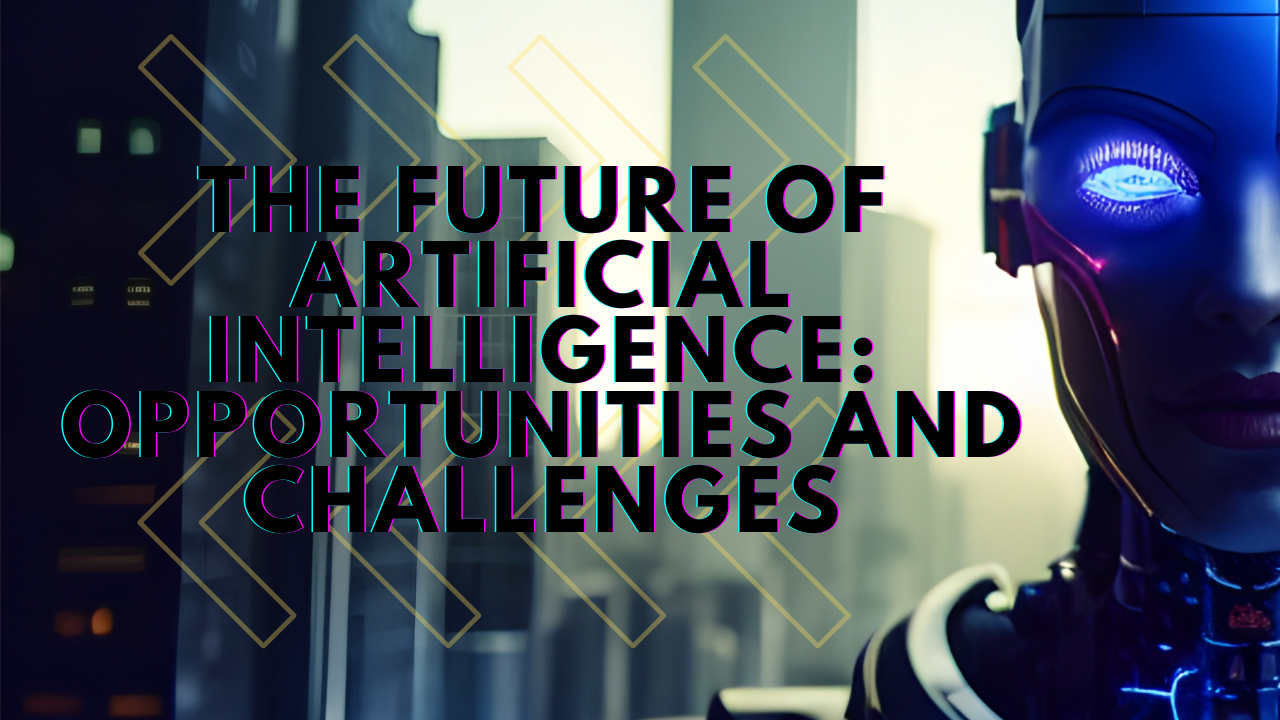Back to Blog
The Future of Artificial Intelligence: Opportunities and Challenges
#articles

Artificial Intelligence (AI) has gone from being a futuristic concept to a daily reality. From voice assistants like Siri to self-driving cars, AI is transforming industries across the globe. But what lies ahead in the evolution of AI? What opportunities does it offer, and what challenges does it pose?
Opportunities in AI
Healthcare Innovation: AI is revolutionizing healthcare by improving diagnostics, treatment plans, and patient care. Machine learning algorithms are now able to analyze medical data faster and more accurately than human doctors, leading to early disease detection and personalized treatment options.
Automation and Efficiency: AI-driven automation has the potential to streamline operations in industries ranging from manufacturing to finance. By automating repetitive tasks, businesses can reduce costs and increase efficiency. This can also lead to more focus on creative and strategic work.
Smart Cities and Infrastructure: AI is set to play a key role in developing "smart cities" — urban spaces that use AI to optimize everything from traffic flow to energy consumption. Smart homes, autonomous vehicles, and AI-powered public services can make cities more sustainable and livable.
Education: AI can help transform the education system by providing personalized learning experiences for students. AI-powered platforms can adapt to each student’s learning style, allowing them to progress at their own pace.
Challenges of AI
Job Displacement: One of the most significant concerns surrounding AI is its potential to replace human jobs. While automation can improve efficiency, it may also lead to the loss of jobs, particularly in sectors like manufacturing and customer service. Reskilling and upskilling will be crucial to ensuring that workers can transition to new roles.
Bias and Ethics: AI systems are only as good as the data they are trained on. If the data contains biases, the AI can perpetuate those biases, leading to unfair outcomes in areas like hiring, law enforcement, and lending. Ensuring ethical AI development is critical to preventing harm.
Privacy Concerns: AI systems often rely on vast amounts of data to function effectively, raising concerns about data privacy. Without proper regulations and protections, there is a risk that sensitive personal information could be misused.
Security Risks: AI can be used to enhance cybersecurity, but it can also be exploited by malicious actors to create more sophisticated cyberattacks. As AI continues to evolve, the need for robust security measures will grow.
Conclusion
The future of AI is filled with both promise and uncertainty. The opportunities are vast, from transforming healthcare to revolutionizing industries. However, the challenges cannot be ignored. It will be up to governments, companies, and individuals to navigate this evolving landscape responsibly to ensure that AI benefits society as a whole.
